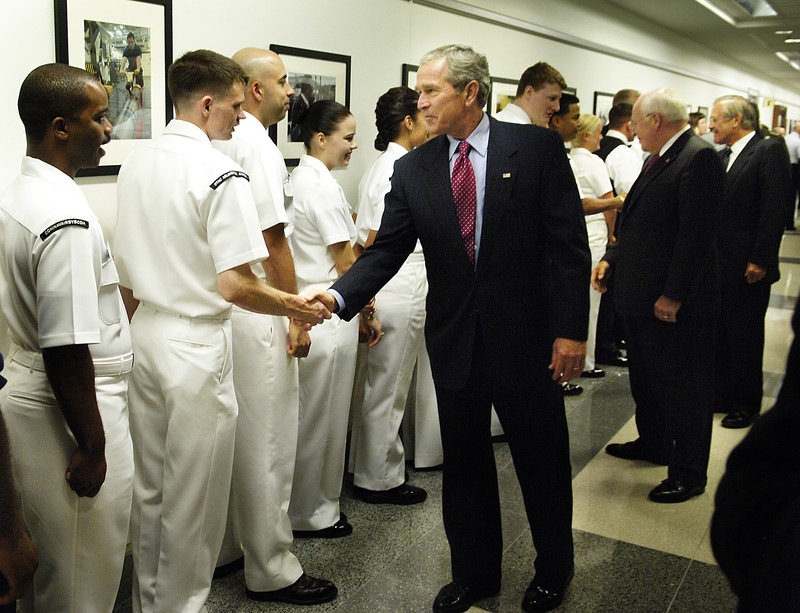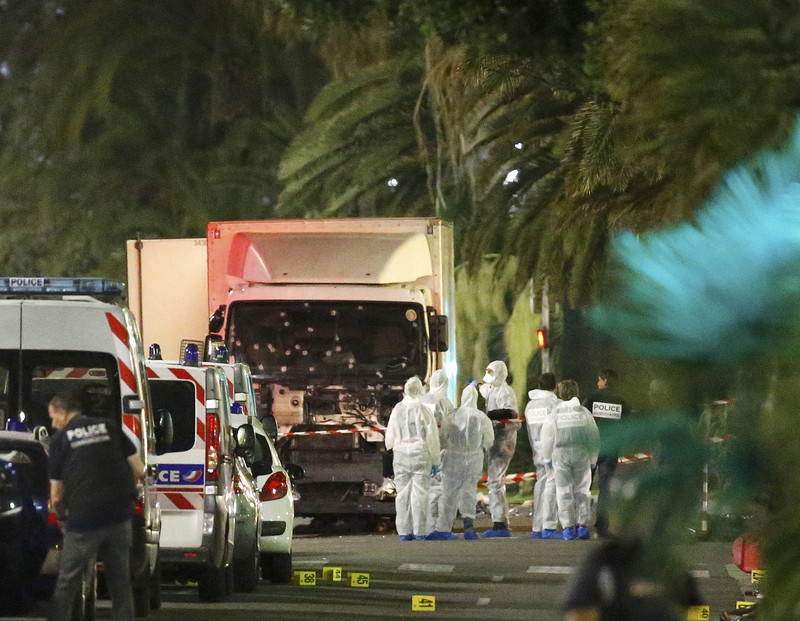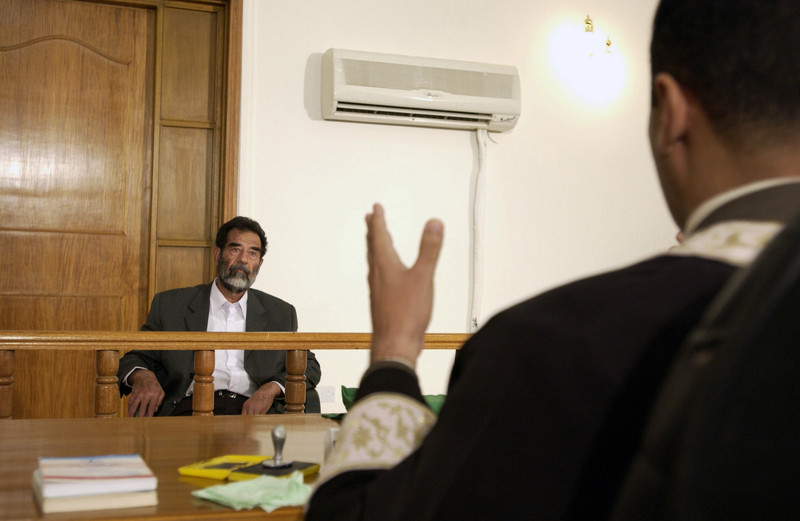[ad_1]
“We’re French! It’s not our fucking war!”, Robert Baer yelled out in Arabic, as a group of armed and “very hostile” Sunni-Muslim tribesmen confronted him and his wife, Dayna, in their jeep on the outskirts of Tikrit, some 180km north of Baghdad, on 11 April 2003.
“That stopped them, and we got through,” he said, recalling the incident 17 years later.
He did have a French driver’s licence, but, in fact, both he and his wife were American and both were former CIA operatives.
They had sneaked into Iraq from Jordan to cover events as freelancers for American TV broadcaster ABC, in a war which had just split Western allies, and which would go on to cost millions of lives, destabilise the Middle East, and delegitimise US power.
The US army, backed by the UK, had launched airstrikes on Baghdad on 19 March, followed by a ground incursion one day later.
But France, and most of the other Nato and EU nations had stayed out.
And even though Baer had lied about being French, it really wasn’t his war, because he, and all the other Middle East specialists still in the CIA, thought the then US president George W. Bush had made a sickening mistake.
“For one, I knew there wasn’t the intelligence to support an invasion,” Baer said, referring to US and British claims that the late Iraqi president Saddam Hussein had weapons of mass destruction.
“It was pure Trumpian fakery,” Baer said, referring to the current and outgoing US president Donald Trump, who is known for lying.
“The feeling in the CIA was you couldn’t destroy the Iraqi army, because that would let in the Iranians and cause a bloodbath,” he added.
“But the White House was full of idiots … they had no filter between fact and belief,” Baer said.
“They thought they’d bring down Saddam and then there’d be this domino-effect of good triumphing over evil in the region,” Baer added.
“It was very religious: ‘God is on our side. We beat the evil Soviet Union and now we’re going to beat evil in the Middle East’,” he said.
And a domino-effect did happen – but not the one the White House imagined.

Dominoes fall
In the first brick to fall, Iraq’s Shia-Muslim majority allied with Shia-Muslim Iran and unleashed a civil war against Iraq’s pro-Hussein Sunni minority.
In the next brick, the Sunni majority in Syria revolted against its Shia dictator, Bashar al-Assad, inspired, in part, by Hussein’s fall in Iraq.
Hussein’s disbanded Sunni army then joined Sunni jihadists in Iraq and Syria to fight for survival, in a force that would later morph into the Islamic State.
And in a final domino, US violence helped cause many Muslims of all sects to hate the West, making Iraq everybody’s war.
The reason why the Sunni tribesmen were so hostile toward Baer and his wife that day in April 2003, for instance, was because a US airstrike on Ramadi, near Tikrit, had just flattened a three-storey building, killing 21 civilians, including children.
“Desperation and resentment turn to conspiracy theories and radicalism … and now we have Paris and Vienna,” Baer said, referring to two jihadist attacks in the EU in late 2020.
By the time Baer and his wife arrived in Baghdad, on 12 April, Hussein’s army had been all-but defeated and US soldiers were already guarding the oil ministry.
“It was eerie, because the electricity was off and the city was burning – and that’s what lit up our bedroom in the hotel,” he said.
US jets were still bombing pockets of resistance in northern Baghdad.
Narrow alleys were littered with Iraqi tanks with holes blown in their tops by armour-penetrating missiles.
And you could feel the “hate and fear” between the Shia and the Sunnis on the streets, Baer said.
“I knew that nobody was going to put this back together,” he said.

Everybody’s war
Meanwhile, looking back at Bush’s diplomacy, Baer said White House-handling of its European allies compounded their strategic differences.
“No one [from the US] went to Paris and said: ‘Hey. This is what we’re doing, but how do you think it’s going to go?’, because they thought no one in Europe knew how the world works,” Baer said.
“They went to Paris and said: ‘Why are you being such girls about this?’,” he said.
“It was pure arrogance and France’s only role would have been to come in as a US handmaiden,” Baer added.
And looking at the Middle East today, he said Western allies there were now less safe than they were before 2003.
Israel is dealing with “a much more threatening Hezbollah”, Baer noted, referring to an Iran-allied Shia militia in Lebanon, which has gained war-fighting experience and weaponry on the battlefields of Syria.
And “the Iranians could be in Riyadh in a couple of days, if it wasn’t for US protection”, because Hussein’s Iraq used to be Saudi Arabia’s “shield”, Baer added.
But geopolitics aside, for the ex-CIA man, the events also left a moral stain that will stay in the history books for good.
“My friends in Doctors Without Borders [a French NGO] say that between 1990 [the first US invasion of Iraq] and today, you can attribute 10 million deaths to these wars, not to mention US casualties,” Baer said.
“Saddam was clearly a brutal man, but how can you trade one life for 10 million?”, he added.
“It was an utter catastrophe,” Baer said.
“And there’s not even a sense of memory, of failure, in the US … the Americans feel they got their pound of flesh, but how do you put a price on all those deaths?” he concluded.

[ad_2]
Source link
